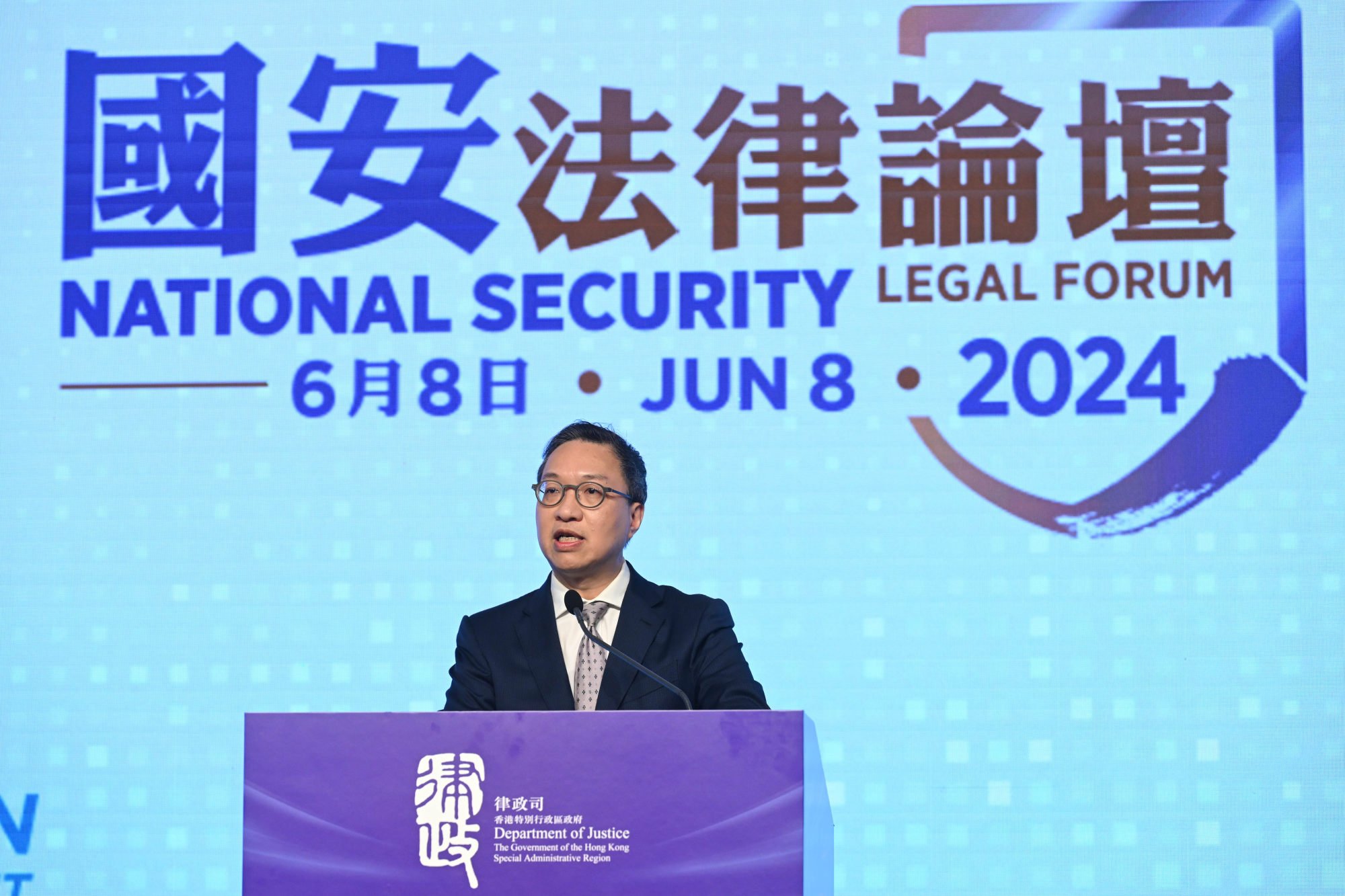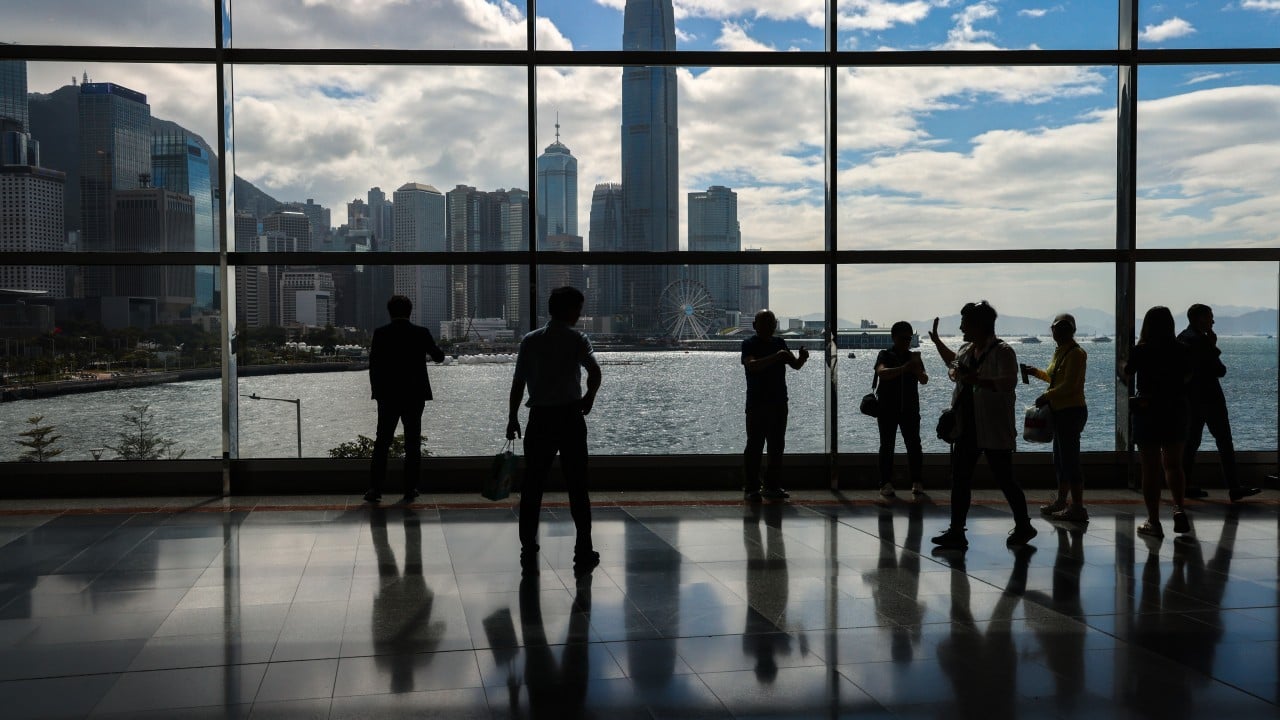Framing the US as an unfriendly country is an irrational approach for Hong Kong, the city’s justice minister has said, pointing to the need to show “confidence and ability” in maintaining ties with the rest of the world.
Washington has been a frequent target of the Hong Kong government’s rebuttal statements, including one issued last Friday to condemn “unfounded smears” made by the United States and some other Western countries over a court ruling in a landmark national security trial.
But Secretary for Justice Paul Lam Ting-kwok, in a discussion over the new offence of foreign interference at a forum on Saturday, said he did not agree with the idea that the US was unfriendly.
“Many individuals in the United States might have some unfriendly words and deeds towards us, saying things that we feel are very inappropriate, but should this be a reason for us to call the United States an unfriendly country? I think it would be an irrational thing to say,” he said.
“Hong Kong is a very international city and we deal with all sides.”
He said the city needed to “show that we have the confidence and ability to stay in touch with the outside world, which we are all welcome to do”.
“This is the characteristic of Hong Kong and what we are good at,” he said.
The minister added that the country’s pursuit of national security was “relative” and not “absolute”, while there was also a balance to strike between protecting safety and fostering development.
“An absolute state of security would equate to locking yourself in with 10 doors in your house, so you can’t get out, and instead end up like a frog in the bottom of a well. This is not the purpose of [safeguarding] security,” he said.
“What we are pursuing is a suitable door … The choice is our hands. We have to use our wisdom and judgment to decide when to open and close it.”
He also conceded that the sedition offence, a colonial-era crime that has been incorporated into new domestic security legislation, had prompted worries among regular residents that “scolding [the government] harshly would be considered inciting hatred”.

The Safeguarding National Security Ordinance took effect in March as a domestic counterpart to the national security law Beijing imposed in 2020. It was required under Article 23 of the city’s mini-constitution, the Basic Law.
Lam said that whether a remark was seditious depended on the context, and a message full of hate might not be viewed by others as inciting hatred.
Residents who cared about society should still criticise the government to help drive better policymaking, he said.
Han Dayuan, a law professor at Beijing’s Renmin University, in an earlier session at the forum also suggested the threshold for conviction was “very, very high” for the offence of seditious intention.
“It is in line with the rule of law principles for residents to put forward criticism and suggestions – including sharp criticism – out of the expectation that the government should do better. We should distinguish these [from the sedition offence],” he said.
The legal scholar said it was important to uphold judicial independence in proceedings of national security cases and respect the professional adjudication by Hong Kong judges, noting that “social consensus can be built up through the rule of law”.


